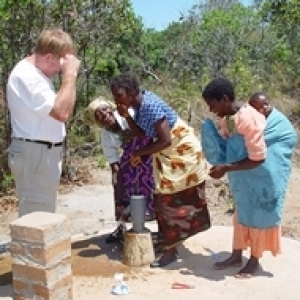Students learning with communities
We have a great connection with this excellent Service Learning programme in DIT,
(Dublin Institute of Technology), where students work with communities generally around the city but now in Northern Malawi with us.
This group of fine young men are third year students of manufacturing engineering and are part of a group working on pumps for irrigation and bicycle ambulances.
I dropped in to look at progress and more or less do a tutorial with each group.
They are bright, inventive, creative and inspirational.
Thanks Guys.
The DIT Programme for Students Learning With Communities supports staff and students engaging in community-based learning and research (also known as service-learning), and builds links with communities.
Students Learning With Communities involves DIT staff and/or students working with community partners (local groups, not-for-profit organisations, etc) to develop real-life projects. Learning comes alive for the students as they work on these projects with real clients, applying their specialist subject skills, and receiving course credits for their work. The community becomes part of the teaching process and benefits from the students? work. These projects give all participants the opportunity to engage in critical thinking and to develop their social awareness. The Programme for Students Learning With Communities ultimately aims to energise participants to work for social change.
The Vision:
To be a vibrant, professional hub connecting DIT students and staff to local, national and international communities, by linking learning with real life application, for mutual benefit.
The Mission:
To encourage, support and develop the practice of community-based learning and community-based research within programmes across DIT.
To produce socially conscious graduates with applied and transferable professional skills.
To build sustainable relationships with community and voluntary organisations.
To create appropriate links with industry in support of community-based learning and community-based research.
To collaborate with national and international educational institutions to advance best practice in the area.
- 0
- 0

Comments
Sign in or get an account to comment.


